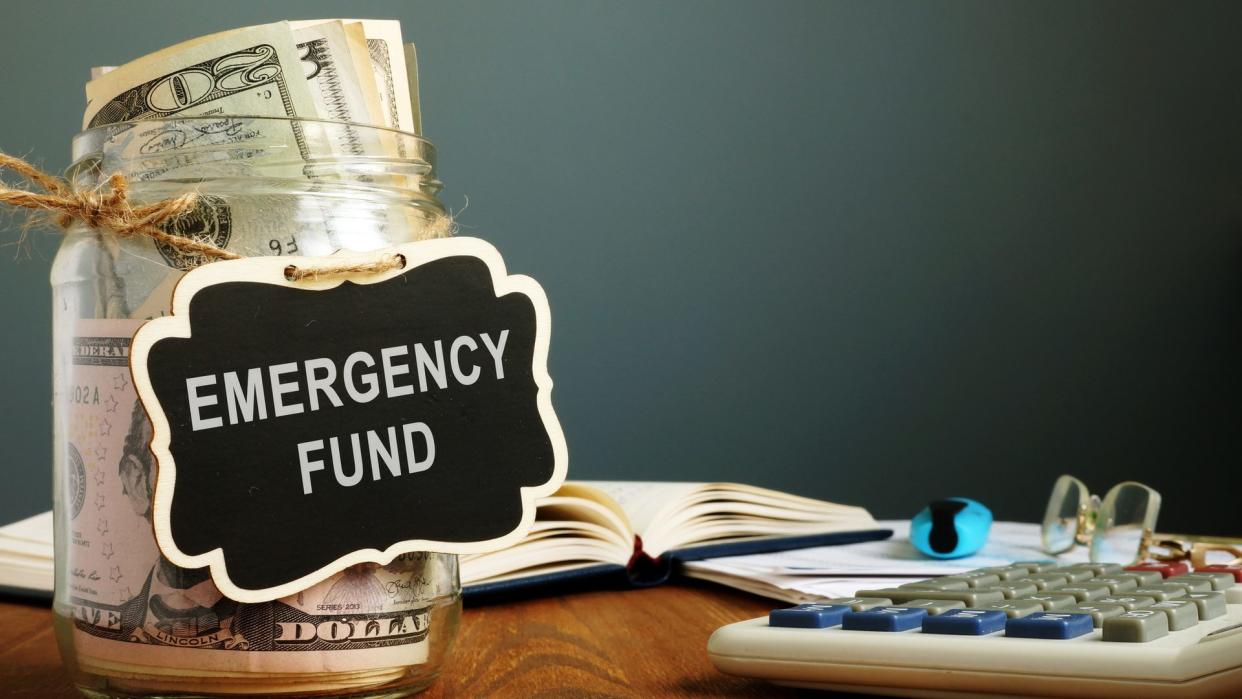Should You Build a General Savings Account or An Emergency Fund First?

When you’re a frugal person and dedicated to putting money aside for your future, one common dilemma you’ll face is deciding whether to start building an emergency fund or a general savings account.
Read More: How Much Does the Average Middle-Class Person Have in Savings?
Find Out: 5 Genius Things All Wealthy People Do With Their Money
Deciding which to build up can seem tricky — but it’s important to differentiate.
According to experts, there are pros to both, but the first step is understanding the difference between the two.
Savings Account
“A general savings account is meant to be used for future expenses including saving for a down payment on a house, a dream vacation, or retirement,” said Michael Benoit, certified finance expert and founder of ContractorBond.
He said the key factors to consider are your current income, spending habits and long-term financial goals.
“Let’s say you make $3,000 a month after taxes. You create a budget and determine that you can save 20% of your income, or $600, towards your general savings account. This means you will have saved $7,200 in one year to put towards any future expenses.”
Check Out: Here’s the Salary Needed to Actually Take Home $100K in Every State
Emergency Fund
On the other hand, Benoit explained that an emergency fund is designed to cover unexpected and urgent expenses such as medical bills, car repairs or sudden job loss.
“I advise you to consider a few factors while deciding how much to save in your emergency fund like current expenses, lifestyle, job security, and potential risks. For instance, If your monthly expenses are $2,000 and you lose your job unexpectedly, I recommend having at least 3-6 months of expenses saved in your emergency fund. This would amount to a total of $6,000-$12,000.”
He added: “I suggest building an emergency fund first if you do not have one or are currently in debt.”
He said having a solid emergency fund can prevent you from going into debt when unexpected expenses arise, allowing you to stay on track with your financial goals.
Before You Decide, Think About Your Current Needs
“If you are deciding whether to build a general savings or start an emergency fund before getting started, think about what you really need,” said Dayten Rynsburger, chief revenue officer and co-founder of Niche Capital CO. “In most cases, you want to start with an emergency fund.”
He said your emergency fund is a buffer for surprise expenses such as emergency medical bills, losing your job or a major home repair, and it should have three to six month’s expenses in it.
“Once your safety net is established with an emergency fund, you can then begin building up general savings,” he said. “General savings are for future, planned expenses, such as your retirement, buying a home, or education funding. The major difference is the purpose: emergency funds are for immediate, unplanned needs, while general savings are for achieving long-term goals.”
To track both, he suggested starting by filling your emergency fund.
“Say you’ve decided to save $500 a month — keep throwing that much at your emergency stash until you hit the mark,” he said. “Then you can shift into savings mode for your broad financial goals. This way, you’re prepared for the unexpected without failing to save for the dreams you have for the future.”
Consider Contributing To Both Simultaneously
“Ideally I might recommend contributing to both these types of savings simultaneously,” said Carter Seuthe, CEO of Credit Summit. “However, I would tend to place more priority on an emergency savings — so the bulk of your savings allowance should be going there. This is just because the expenses you will typically be dipping into this account for will tend to be larger, so it’s important to build this total faster than your regular everyday savings.”
“I usually recommend having about two months’ worth of expenses saved in your emergency fund at the very least,” he added.
Experts Agree: Building Up Your Emergency Fund Is Your Safest Bet
“I always recommend starting with an emergency fund,” said Rhett Stubbendeck, CEO and founder at Leverage Planning. “It’s your financial safety net, designed to cover unexpected expenses like a medical bill or sudden job loss. For instance, when I was just starting out, I focused on saving up six months’ worth of expenses. This emergency fund gave me the peace of mind to pursue other financial goals without stress.”
Once You Have a Safety Net, You Can Shift Focus
After securing an emergency fund, Stubbendeck recommended that you can then shift focus to a general savings account.
“This is where you save for planned expenses, such as a vacation or a new laptop. At [my company], we help clients set clear savings targets and strategies, like automatic transfers that make saving effortless.”
He said a practical way to balance these goals is to allocate more of your budget to the emergency fund initially.
“Once it’s sufficiently funded, redirect those funds to your general savings. For example, a client of ours used his annual bonus to top off his emergency fund, which allowed him to start saving for a down payment on a house.”
More From GOBankingRates
This article originally appeared on GOBankingRates.com: Should You Build a General Savings Account or An Emergency Fund First?
